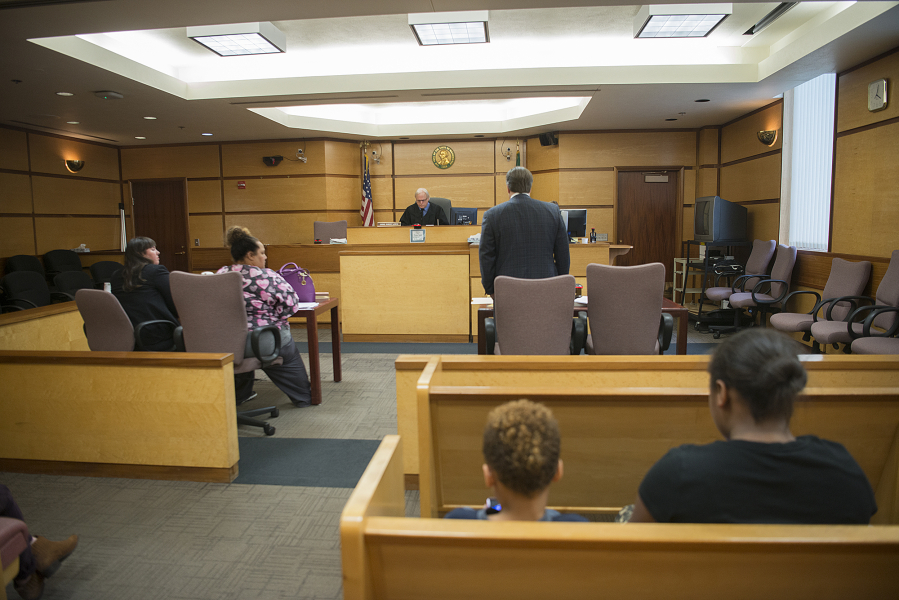Bankruptcies can be complicated knowing your rights when a tenant files is crucial.
Bankruptcies can be complicated, and knowing your rights when a tenant files is crucial.
First, some clarification on the types of bankruptcy available to the consumer and the injunctions that accompany bankruptcy filings:
Chapter 7 versus Chapter 13. Individuals who file for bankruptcy are “debtors” and have the choice of filing either Chapter 7, a liquidation, or Chapter 13, a repayment plan. (Chapter 11 is another option, but it’s available to those with extraordinarily high debt and is much less common.)
In a Chapter 7 filing, the debtor essentially hands all of his or her assets over to a trustee, who then decides whether to administer those assets. When a lease is involved, the tenant can assume the lease but usually can only do so if the rent is current. In a Chapter 13 filing, however, the tenant has the option of making the delinquent rent payments current over a period of time, usually no more than six months. More on this point below.
The automatic stay. One of the most important aspects of any bankruptcy filing is the “automatic stay.” This is an injunction that stops creditors from trying to collect debts from the debtor.
Essentially, once a tenant files for bankruptcy, a landlord may take no further action to collect past-due rent, continue with an eviction, or even offset a security deposit. Landlords who violate the automatic stay may suffer serious repercussions.
There are exceptions to this general rule. For example, the U.S. Bankruptcy Code allows a residential landlord to enforce a judgment for possession against a bankrupt tenant if that judgment was obtained before the bankruptcy was filed. In addition, the automatic stay doesn’t apply to tenants who have engaged in illegal drug use on the property or who have endangered the premises somehow. In any event, if there’s any doubt about whether the automatic stay applies, and to what extent, contact your bankruptcy counsel for advice.
Terminating the automatic stay. The Bankruptcy Code’s automatic stay isn’t without its limitations. For example, although the bankruptcy filing can protect a tenant’s past defaults, it won’t necessarily protect any new defaults. In other words, once a tenant has filed for bankruptcy, lease payments must be made on a timely basis going forward. If not, the landlord has good reason to ask the court to permit it to move forward with its eviction against the tenant.
The Tenant’s Options
The tenant in bankruptcy has several options available when the lease hasn’t expired or hasn’t been terminated prior to the filing.
The tenant may reject the lease. This means the tenant voluntarily agrees to vacate the premises and is therefore no longer bound by the terms of the lease.
On the other hand, the tenant may decide to assume the lease, which means the tenant can reaffirm his or her obligations under an unexpired lease. However, the Bankruptcy Code permits a tenant to do so only if the tenant is (a) current on lease payments or can “cure” any arrears in a prompt manner, and (b) gives “adequate assurance of future performance” under the lease. What does this mean and what can a landlord do to ensure that its rights are preserved?
Curing payment defaults promptly. The Bankruptcy Code requires a “prompt” cure of lease defaults but fails to define what “prompt” means. Most courts will consider payment over six months to be prompt. If the tenant proposes to cure past-due payments over a period of years, on the other hand, the court will most likely reject the proposal.
Adequate assurance of future performance. Once again, the Bankruptcy Code doesn’t define this concept; rather, it’s generally applied by bankruptcy courts on a fact-sensitive basis. Typically, courts won’t rigorously adhere to this facet of lease assumption but may give some consideration to the tenant’s financial condition, ability to pay based on income, and any offers to make prepayment of rent going forward.
When a lease is assumed, both landlord and tenant must continue to comply with all terms and conditions of the lease. Failure of the tenant to do so may be cause for the landlord to seek the court’s permission to terminate the lease.
It is also important to know when debtors must decide what option to pursue. Generally, tenants have 60 days in a Chapter 7 (liquidation) case, or up until a repayment plan is confirmed in a Chapter 13 case, to decide whether to assume or reject a lease. If these deadlines aren’t met—or aren’t extended by the court—the landlord should react quickly and move forward with a remedy.
Asserting Your Claim
Simply stated, a claim is acknowledged when a creditor files a statement with the bankruptcy court stating that the debtor owes the creditor money.
A landlord should file a claim in a bankruptcy case to protect its interests, particularly when the tenant rejects the lease. The rejection of a lease results in several possible claims by the landlord, including: (a) damages for all past-due payments under the lease as of the filing date; (b) amounts due for any unpaid charges or rent that arose after the bankruptcy filing; and (c) lease-rejection damages subject to a cap, which normally won’t exceed one year’s worth of rent due.
Landlords may also be entitled to recover other charges, including attorneys’ fees. However, these claims are afforded different priority under the Bankruptcy Code’s distribution scheme. Therefore, it is absolutely essential to consult with a bankruptcy professional to determine what claims will be paid, and in what order.
What Else Can You Do?
Because tenant bankruptcy can be costly to owners, once the tenant’s financial situation becomes clear, the owner/landlord should consider alternatives. If at all possible, you should negotiate a pre-bankruptcy resolution with a tenant in financial distress. Can the lease be modified to keep the tenant in the property (and paying rent)? Can a peaceful and consensual termination of the lease be negotiated that lets the landlord regain possession of the unit on terms that are workable for the tenant?
These and other options should be explored if at all possible. A carefully negotiated pre-bankruptcy resolution can help you avoid pitfalls if the tenant eventually does file for bankruptcy protection.
Landlords have some other options, as well, when faced with a tenant’s bankruptcy filing. Did the tenant file the bankruptcy petition in good faith? Is this the first time this particular tenant has filed? In other words, is your tenant a serial bankruptcy filer? If so, you may be able to convince the bankruptcy judge that the tenant’s sole purpose in filing was not to reorganize but simply to frustrate his or her landlord’s attempt to regain its property, thus resulting in a dismissal of the tenant’s case.
In any case, bankruptcies can be complicated, and knowing your rights when a tenant files is crucial. Having qualified counsel on board can help a landlord navigate through these difficult issues.
Tags: Eviction Information, Landlord Information






 Tenant or Licensee?
Tenant or Licensee?
 A companion measure that requires landlords to more throughly account for security deposit funds withheld for repairs passed along the same line. That ordinance also allows tenants to pay security deposits in installments over three months.
A companion measure that requires landlords to more throughly account for security deposit funds withheld for repairs passed along the same line. That ordinance also allows tenants to pay security deposits in installments over three months.









